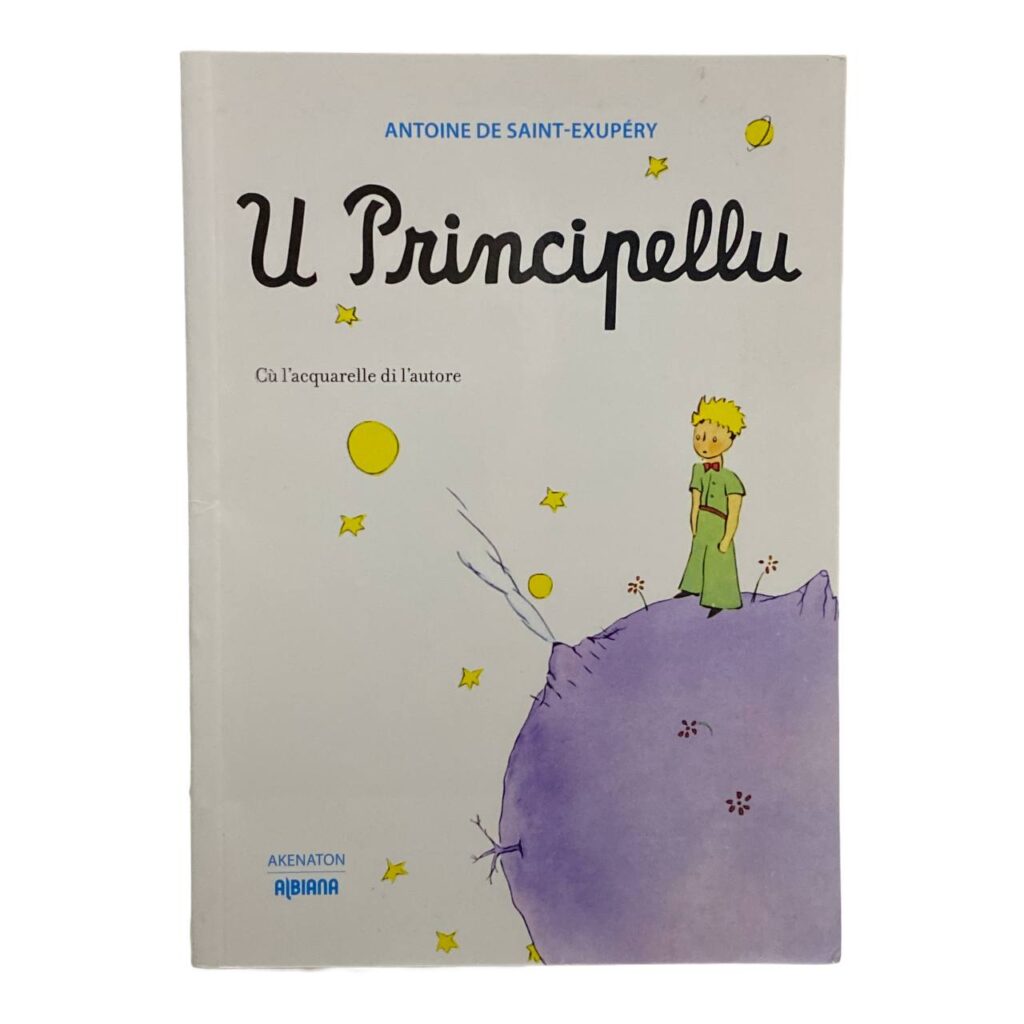
U Principellu, in Corsican language.
If you read the story of the author, you would have wondered if the Corsican edition has ever been published. Saint-Exupéry’s last flying was to collect intelligence on German troop movements in and around the Rhone Valley preceding the Allied invasion of southern France. He took off in an unarmed P-38 on his ninth reconnaissance mission from an airbase on Corsica. He did not return, dramatically vanishing without a trace. Just like the Little Prince.
Corsican (Corsu) is a Romance language spoken predominantly on the Mediterranean island of Corsica (France). Corsican is closely related to the Tuscan varieties from the Italian peninsula, and therefore to the Florentine-based standard Italian.
Under the longstanding sway of Pisa and Genoa over Corsica, Corsican used to play the role of a vernacular in combination with Italian, which was the island’s official language; in 1859, Italian was replaced by French, owing to the French acquisition from the Republic of Genoa in 1768. Over the next two centuries, the use of French in the place of Italian grew to the extent that, by the Liberation in 1945, all the islanders had a working knowledge of French.


